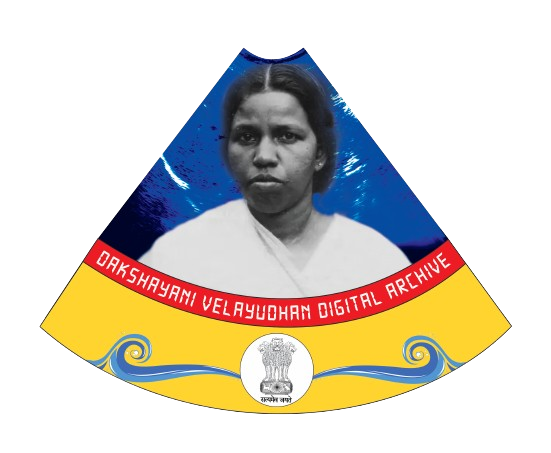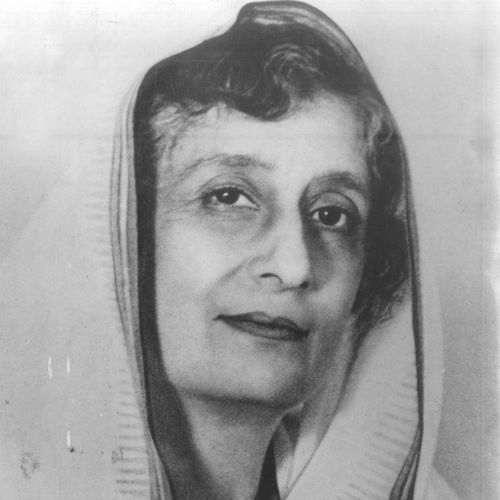Rajkumari Amrit Kaur, born on 2 February 1889 in Lucknow into Punjab’s Kapurthala Royal family, embarked on a life of service and advocacy. Her early education in Sherborne School, England, and subsequent graduation from the University of Oxford laid the foundation for her illustrious journey.
Basic details and biography of Rajkumari Amrit Kaur:
| Attribute | Details |
| Full Name | Rajkumari Amrit Kaur |
| Born | February 2, 1889 |
| Birthplace | Lucknow, India |
| Family Background | Born into Punjab’s Kapurthala Royal family |
| Education | Graduated from Sherborne School (England) and University of Oxford |
| Inspiration | Inspired by Mahatma Gandhi’s fight for Independence |
| Political Affiliation | Indian National Congress |
| Constituency | Central Provinces and Berar |
| Mother Tongue | Punjabi |
| Committee Memberships | Advisory Committee on Fundamental Rights, Minorities, Tribal and Excluded Areas; Sub-Committee on Fundamental Rights; Sub-Committee on Minorities; Provincial Constitution Committee |
| Key Roles | Secretary to Mahatma Gandhi for 16 years; Co-founder of All-India Women’s Conference; India’s first Health Minister; Advocate for constitutional equality and gender rights |
| Contributions | Played a vital role in shaping constitutional provisions; Advocated against discriminatory practices; Supported a Uniform Civil Code; Significant contributions to healthcare, education, and child welfare |
| Legacy | Left an indelible mark on India’s journey to independence and development; Honored with various awards and recognitions |
| Passed Away | February 6, 1964 |
Role in India’s Independence Movement
Drawn towards Mahatma Gandhi’s principles, Kaur relinquished her Sherborne and Oxford education to serve as his secretary for 16 years. In 1927, she co-founded the All-India Women’s Conference, showcasing her commitment to gender equality and social causes. Actively participating in the Indian freedom struggle, she faced imprisonment on multiple occasions, notably during the Salt Satyagraha and the Quit India movement.
Contribution to Constitution Making
Elected to the Constituent Assembly from Central Provinces and Berar, Kaur played a significant role in shaping constitutional provisions. As a member of crucial sub-committees, including Fundamental Rights and Minorities, she passionately advocated against constitutional protection for discriminatory practices and voted in favor of a Uniform Civil Code.
Leadership and Health Advocacy
In independent India, Kaur became the first Health Minister, serving for ten years and making significant contributions to healthcare. Instrumental in the establishment of the All-India Institute of Medical Sciences (AIIMS), she championed the cause of nursing and led India’s delegation to global health forums.
Education and Welfare Work
A fervent advocate of free education, particularly for women, Kaur contributed to various educational initiatives, serving on the Board of Trustees for the Nankana Sahib Education Trust and the Hindustani Talimi Sangh. Her extensive work in child welfare led to the founding of the Indian Council of Child Welfare, where she served as the first President.
Legacy and Passing
Rajkumari Amrit Kaur’s legacy is imprinted on her writings, including “Woman in India,” “Challenge to Women,” and “To Women.” Honored for her dedication, she received an honorary Doctor of Laws degree from Princeton University. She passed away on 6 February 1964 in New Delhi at the age of 75.
Key Writings
Kaur’s writings, such as “Gandhi and Women,” reflect her engagement with Gandhian principles, particularly concerning women’s issues.
Rajkumari Amrit Kaur’s life epitomizes the confluence of principled leadership, tireless advocacy, and a deep commitment to societal welfare, leaving an indelible mark on India’s journey to independence and subsequent development.

